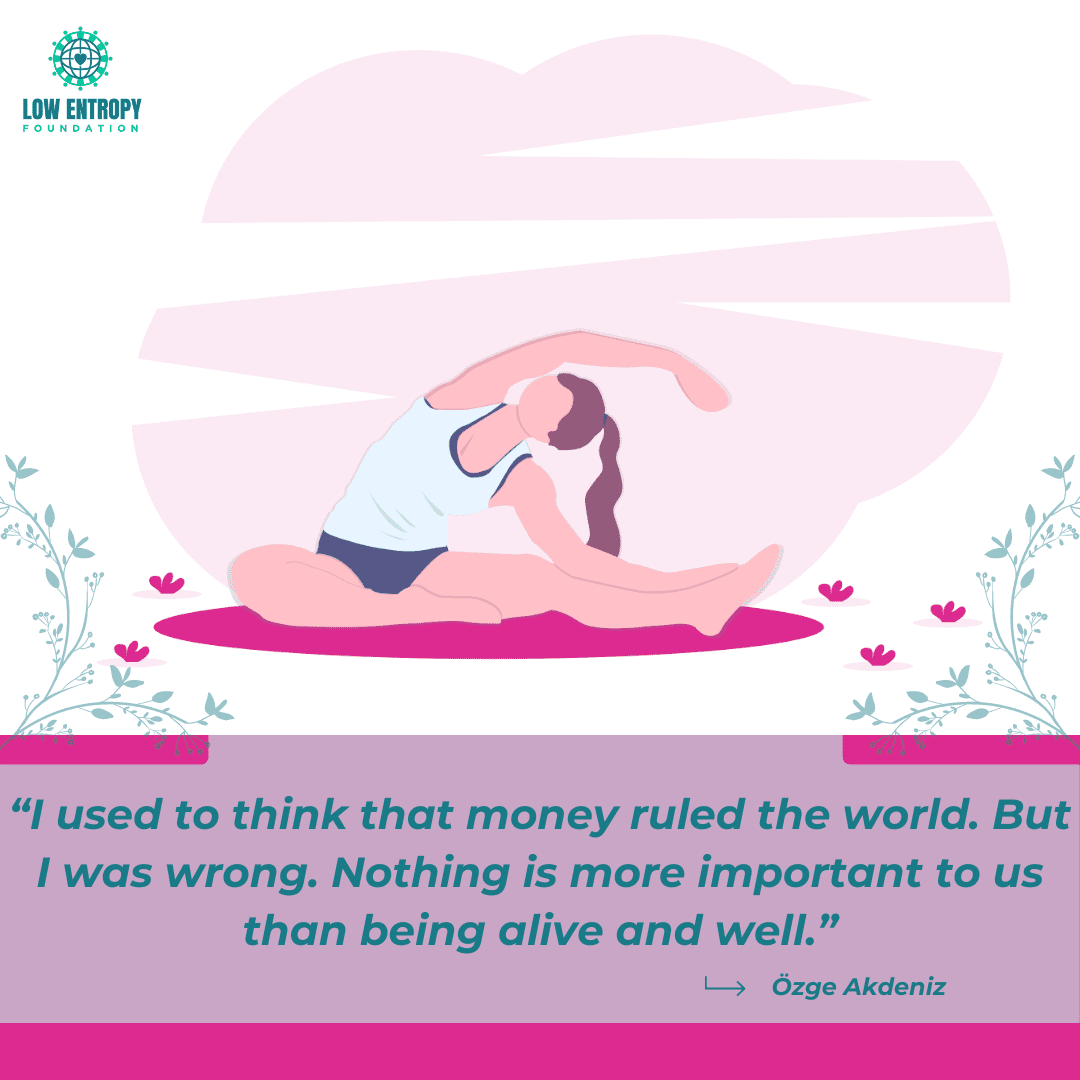Depending on where you are, it’s been about a year that we’ve been living with COVID-19. With the world put on hold for what seems like forever, Low Entropy Volunteer Writer Özge Akdeniz had enough free time to put together a collection of insightful, optimistic lessons learned from an otherwise awful ordeal.
The coronavirus pandemic has been hard on everybody, myself included. But in the time left after complaining about how unfair life is, I thought about the life lessons I have learnt from this whole mess. So without further ado, let’s take a look at my ideas about the possible positive lessons we can take from the pandemic:
1) You’re not in control.
Yes, I know. It doesn’t sound that good. But bear with me. As humans, we enjoy the feeling of control. Some of us could even plan their entire life if they were given the chance. But in reality, we really don’t choose what’s going to happen to us, for the most part. Who could predict this pandemic beforehand? But here it is, changing our lives and throwing our plans off. Though it sounds depressing at first, doesn’t it make you feel better, the idea that you’re not the only reason why things aren’t going the way they were supposed to? This is just the right time to stop beating yourself up about all of your “failures”.
2) Small things matter.
Going to a café and spending some time reading while I sip my coffee in a nice ambiance wasn’t something I appreciated enough before the pandemic. Nor was being able to meet with a friend and hug them. But after all, I learnt that life is all about those small things I enjoy. Even being able to comfortably breathe without a mask was a huge blessing. But I know that someday, I will be able to do these things again. Meanwhile, I’ll just focus on what blessings I have right now.
3) Health is a priority.
How often do you stop to appreciate your health? Your body is working to keep you alive every single second. But oftentimes we don’t give our health the attention it deserves. It’s only when it is taken away, or when it is in danger, that we understand its importance. The most valuable thing you have is a properly working body and mind. Countries all over the world are fighting to keep people alive, despite the financial consequences of closing down businesses. I used to think that money ruled the world. But I was wrong. Nothing is more important to us than being alive and well. We are, after all, animals who are fighting to survive.
4) Hope is essential to survival.
The last thing I learnt from the pandemic is that having hope for the future truly matters. I don’t want to listen to people who say I have to be realistic, and that is the only way I will do well in life. When you stop having a positive outlook, it affects your mental health. Being stuck in the doomsday mentality only made my life even more miserable. When you focus on the negative parts of the situation, it usually doesn’t cause a fighting response from your brain. It only triggers the “flight” mode. You stop trying, because it seems like no matter what you do, you cannot overcome the huge problems in your life. You need to start seeing the bright future that is ahead of you, so that you will be motivated to actually make it come true.
What lessons have you learned in the past year and how have you maintained your optimism? Comment here or join us at a Low Entropy meeting!







